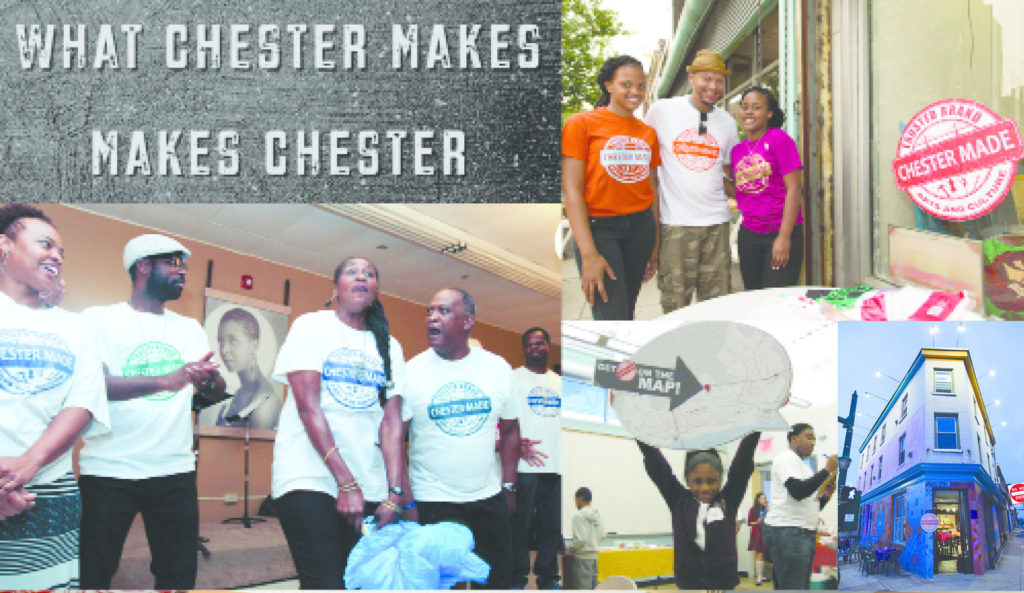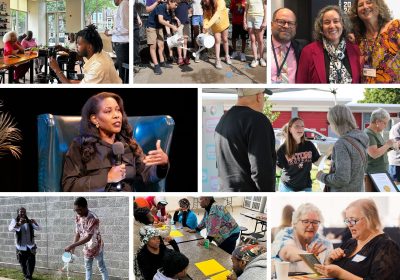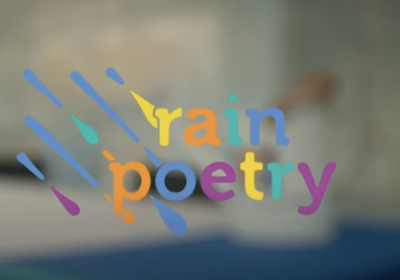Over the last two years the Pennsylvania Humanities Council has led the Chester Made initiative in partnership with the City of Chester, Just Act (formerly Gas & Electric Arts), Chester Arts Alive!, Widener University, and The Artist Warehouse. This bold project is grounded in the belief “that democracy is animated by imaginative humanities programming—by people creatively engaged in history, storytelling, and dialogue about issues affecting their communities.”

A report from Animating Democracy, a program of Americans for the Arts, found that Chester Made delivered on its discovery and demonstration intents in many ways:
“Chester Made set out to recognize and promote arts and culture in the City of Chester and to harness its power as a force for community revitalization. The project did this and more. … As a result of this dynamic initiative, there is hope and excitement in the promise of new artist and cultural leadership in the downtown and in elevating new as well as longstanding cultural assets that are ‘Chester Made through and through.’ ”
Findings
According to the report, the Chester Made initiative
- Expanded who participates in public process.
- Revealed a spectrum of cultural assets that had not been fully known or acknowledged.
- Revealed that the impact of arts and culture on Chester and its people is profound and multidimensional.
- Generated a palpable sense of hope and pride among participants.
- Made important connections, improving existing relationships and building new relationships within and across sectors, catalyzing new collaborations, and developing leadership in the community for future efforts.
- Generated much learning about what it takes to plan and implement an arts-based and humanities-informed approach to civic planning and community building.
Read the Executive Summary
We invite you to read the executive summary based on the full report by Pam Korza and Barbara Schaffer Bacon of Animating Democracy. The summary focuses on the efficacy and value of a humanities-informed and arts-based approach for community research and planning and specific community outcomes of the Chester Made project.
Funders
This report was made possible with support from The Pew Center for Arts & Heritage and the ational Endowment for the Humanities

![[color – dark bg] PA SHARP FINAL FILES DB 72dpi [color - dark bg] PA SHARP FINAL FILES DB 72dpi](https://pahumanities.org/uploads/files/elementor/thumbs/color-dark-bg-PA-SHARP-FINAL-FILES-DB-72dpi-phgl7aimtfdpzt2rscvl43ksfv3asbbls19lsvuacw.jpg)


